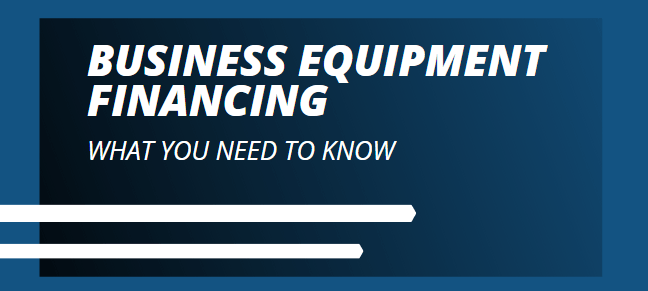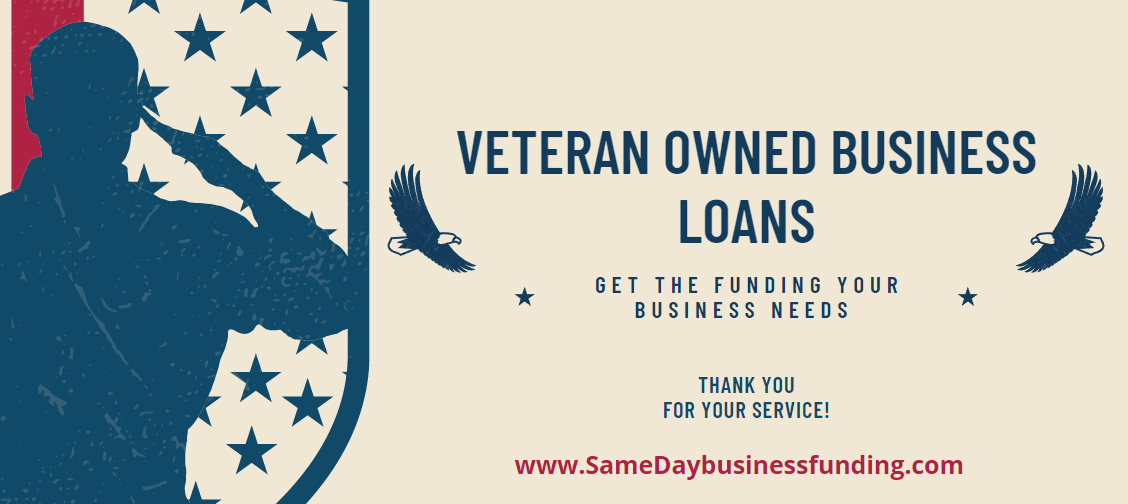
Business Equipment Financing - What You Need To Know
Business equipment financing is a type of financial arrangement in which a business borrows money to purchase equipment that is necessary for the operation of the business.
The equipment serves as collateral for the loan. The lender will typically hold a lien on the equipment until the loan is fully paid off. Business equipment financing is a popular option for businesses that need to acquire expensive equipment but do not have the upfront cash to pay for it outright. It allows businesses to spread the cost of the equipment over time. While also allowing them to take advantage of the equipment’s benefits right away.
Different Types of Business Equipment Financing Options Available:
Equipment loans: This is a traditional loan in which the equipment serves as collateral. The lender will hold a lien on the equipment until the loan is fully paid off.
Leasing: With leasing, the business pays a monthly fee to use the equipment, but does not own it. The leasing company owns the equipment and may be responsible for maintaining it.
Rent-to-own: With a rent-to-own arrangement, the business pays a monthly fee to use the equipment. The business owner has the option to purchase the equipment at the end of the lease term.
Equipment lines of credit: An equipment line of credit allows a business to borrow money as needed to purchase equipment, with the equipment serving as collateral.
Vendor financing: Some equipment vendors offer financing options directly to their customers. These financing options may be more tailored to the specific equipment being purchased and the needs of the business.
SBA loans: The Small Business Administration (SBA) offers a variety of loan programs that can be used to finance the purchase of equipment.
Crowdfunding: Some businesses have turned to crowdfunding platforms to raise the money needed to purchase equipment. With crowdfunding, businesses can receive small investments from a large number of people. Opposed to borrowing a large sum from a single lender.
Which Financing Option Is Best For Your Situation
There is no one-size-fits-all answer to this question. The best type of financing will depend on the specific needs and circumstances of your business. Some things to consider when deciding which type of financing is best for your business include:
The amount of money needed: Different financing options may have different loan limits. So, it’s important to consider how much money you need to borrow.
The type of equipment being purchased: Some financing options may be more suited to certain types of equipment than others. For example, leasing may be a good option for equipment that becomes quickly outdated, while a loan may be a better choice for equipment that will have a longer lifespan.
The creditworthiness of the business: Some financing options may require the business to have a good credit score. If your business has poor credit, you may need to consider alternative financing options.
The repayment terms: It’s important to consider the repayment terms of any financing option you’re considering, including the interest rate, the length of the loan, and the monthly payment amount. Choose a financing option that fits within your budget and that you feel comfortable repaying over time.
The tax implications: Different financing options may have different tax implications. So, it’s important to consider how the financing will affect your business’s tax liability.
What Kind Of Business Equipment Can Be Financed
Almost any type of equipment that is necessary for the operation of a business can be financed. Some common uses include:
Manufacturing equipment: This includes equipment such as machinery, tools, and other equipment used in the production of goods.
Office equipment: This includes equipment such as computers, printers, and other office technology.
Medical equipment: This includes equipment such as x-ray machines, MRI machines, and other medical equipment.
Agricultural equipment: This includes equipment such as tractors, combines, and other farming machinery.
Construction equipment: This includes equipment such as bulldozers, excavators, and other heavy machinery.
Transportation equipment: This includes equipment such as trucks, trailers, and other vehicles used to transport goods or people.
Restaurant equipment: This includes equipment such as ovens, fryers, and other kitchen equipment used in restaurants.
Retail equipment: This includes equipment such as cash registers, point-of-sale systems, and other equipment used in retail establishments.
Salon and spa equipment: This includes equipment such as hair dryers, styling chairs, and other equipment used in salons and spas.
Fitness equipment: This includes equipment such as treadmills, weights, and other equipment used in fitness centers.
What Are The Benefits Of Using Equipment Financing
There are several benefits to business equipment financing:
Allows businesses to acquire expensive equipment without having to pay for it upfront. Business equipment financing allows businesses to spread the cost of the equipment over time. This can make it more manageable for businesses that may not have the upfront cash to pay for it outright.
Allows businesses to take advantage of the equipment’s benefits right away. With business equipment financing, businesses can use the equipment right away. Rather than having to wait until they have saved up enough money to pay for it outright.
Can improve cash flow. By spreading the cost of the equipment over time, business equipment financing can help to improve a business’s cash flow. This can be especially beneficial for businesses that are just starting out or that are experiencing rapid growth.
Can help businesses to stay competitive. By acquiring the equipment they need, businesses can stay competitive in their market and better serve their customers.
- Can be tax deductible. In some cases, the interest paid on business equipment financing may be tax deductible. Which can help to reduce the overall cost of the financing. It’s important to consult with a tax professional to determine the tax implications of any financing option you’re considering.
How Does Personal Credit Play A Factor
The business owner’s personal credit can have an impact on which business equipment financing options are available. Some lenders may require the business owner to personally guarantee the loan. In which case, the owner’s personal credit will be a factor in the lending decision.
Even if the lender does not require a personal guarantee, the owner’s personal credit may still be taken into consideration. It can be an indicator of the owner’s overall financial stability and ability to manage debt.
That being said, there are financing options available for business owners with poor credit, such as alternative and online lenders. These options may have higher interest rates or more stringent repayment terms, but they can be a good option for businesses that are unable to secure financing through traditional lenders.
Conclusion
It’s important to summarize the key points we’ve covered. Business equipment financing is a type of financing that allows a business to borrows money to purchase equipment that is necessary for the operation of the business.
There are several different types of business equipment financing options available. The best type of financing will depend on the specific needs and circumstances of the business.
Business equipment financing can be a useful way for businesses to acquire expensive equipment without having to pay for it upfront. It can also help businesses to improve their cash flow and stay competitive in their market. Almost any type of equipment that is necessary for the operation of a business can be financed.
Just like any other business funding decisions, it is important to review the options available, and choose the option that is best for your business.



